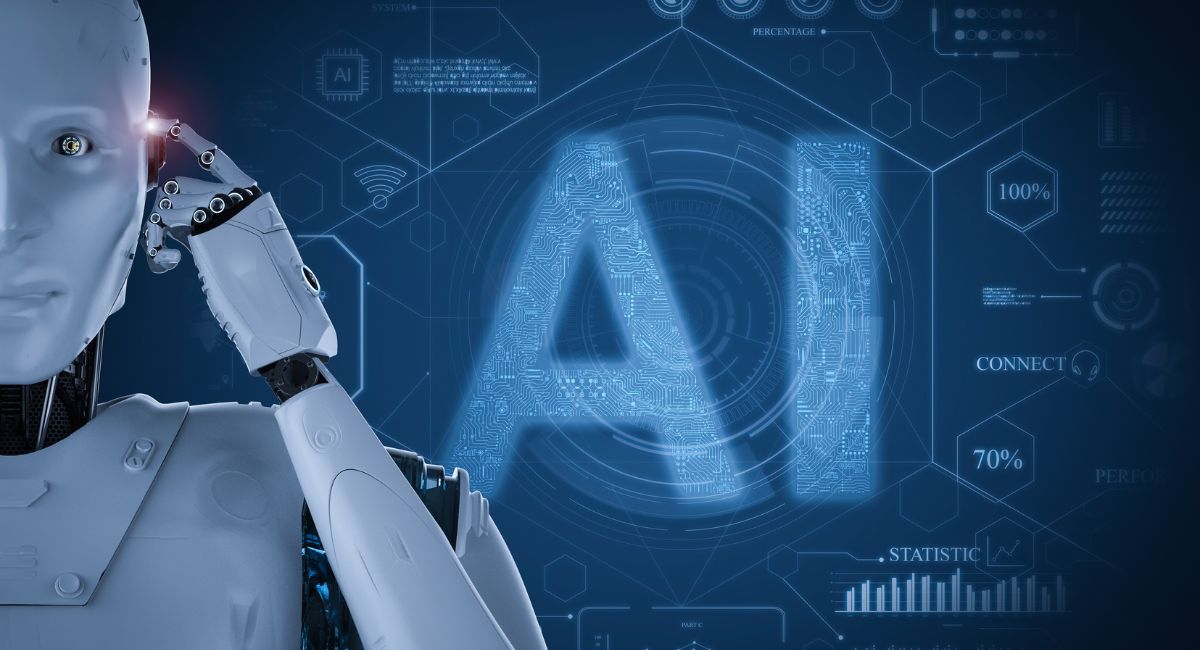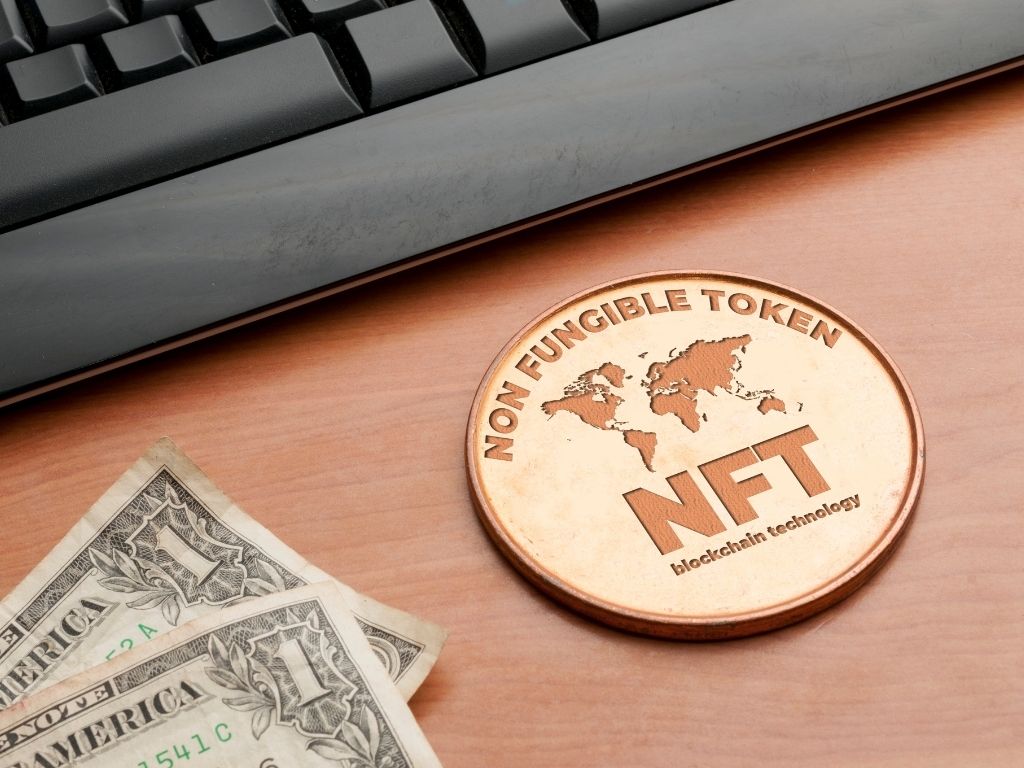All About AI In NFT Market: All About AI Detecting NFT Scams
In recent years, Non-Fungible Tokens (NFTs) have gained significant attention in the art and entertainment industry. However, as with any new investment opportunity, NFTs are vulnerable to forgery and scams. To combat these issues, artificial intelligence (AI) is emerging as a promising solution. In this article, we will explore how AI can help against NFT forgery and NFT scams.
5 ways AI can help against NFT forgery
1. Detecting Forgeries
AI can be trained to recognize patterns and inconsistencies in NFTs, making it a powerful tool for detecting forgeries. By analyzing the metadata, file size, and other key characteristics of an NFT, AI algorithms can identify signs of tampering or manipulation. This can help buyers and sellers to verify the authenticity of an NFT and avoid purchasing fraudulent assets.
2. Identifying Scams
AI can also help to identify scams and fraudulent activity related to NFTs. By analyzing transaction histories and social media activity, AI algorithms can detect patterns of suspicious behavior and flag potential scams. This can help buyers and sellers to avoid falling victim to scams and protect their investments.
3. Enhancing Security
AI can also enhance the security of NFT transactions by providing real-time fraud detection and prevention. By analyzing transaction patterns and user behavior, AI algorithms can detect and block suspicious activity, preventing fraudulent transactions before they occur. This can help to build trust in the NFT market and encourage more people to invest in this emerging asset class.
4. Streamlining Verification Processes
The verification of NFTs can be a time-consuming and complex process, but AI can help to streamline this process. By automating the verification process using AI algorithms, buyers and sellers can quickly and easily verify the authenticity of an NFT and ensure that they are not purchasing fraudulent assets.
5. Improving Transparency
Finally, AI can help to improve transparency in the NFT market. By analyzing transaction data and verifying the authenticity of NFTs, AI algorithms can provide greater transparency and accountability, helping to build trust in the market and promote the growth of this emerging asset class.
🎨 Exciting news! I’ve just added a comprehensive guide on my blog for AI artists on how to successfully sell AI-generated art. This guide is packed with valuable insights and actionable tips to help you master the AI art market. Dive in! #AIart #AIartist pic.twitter.com/KPYeEG9bcx
— 🧵Mike’s NFT Threads 🧵 (@mikesherratt83) May 10, 2023
What types of scams can AI detect in the NFT market?
Artificial Intelligence (AI) has become increasingly popular in the detection of scams in the NFT market. AI can analyze large amounts of data, detect patterns, and identify irregularities that may be indicative of fraudulent activity. Here are some types of NFT scams that AI can detect in the NFT market:
- Fake NFTs: AI can detect fake NFTs by analyzing their metadata and comparing them with the original source. AI algorithms can look for discrepancies in the metadata, such as mismatched transaction history or blockchain address, which can indicate that an NFT is not legitimate.
- Plagiarism and copyright infringement: AI can detect plagiarism and copyright infringement by analyzing the digital art and comparing it with other artwork on the internet. AI algorithms can identify whether the artwork has been copied or plagiarized from another source and flag the NFT as potentially fraudulent.
- Sybil attacks: AI can detect Sybil attacks, which occur when a single person creates multiple accounts to manipulate the market. AI algorithms can analyze the activity of different accounts and identify patterns that suggest they are controlled by the same person.
- Pump-and-dump schemes: AI can detect pump-and-dump schemes by analyzing the trading history of an NFT. AI algorithms can look for sudden spikes in trading activity, abnormal price increases, and large volumes of trading in a short period. These patterns can indicate that a pump-and-dump scheme is underway.
- Social engineering scams: AI can detect social engineering scams by analyzing messages and comments on social media platforms. AI algorithms can identify patterns in the language and structure of these messages that suggest they are fraudulent or misleading.
AI can detect several types of scams in the NFT market by analyzing large amounts of data and identifying patterns that suggest fraudulent activity. However, there are also limitations to the effectiveness of AI in this context, such as the complexity of NFTs and the evolving techniques used by fraudsters. As such, it is important to use AI in conjunction with other fraud detection and prevention methods to create a safe and trustworthy NFT market for all investors.
Also, read – Here’s How to Stay Away From NFT Scams
What are the limitations of using AI to detect NFT scams?
While AI can be a powerful tool for detecting NFT scams, there are several limitations to its effectiveness. Here are some of the main limitations of using AI to detect NFT scams:
- Complexity of NFTs: NFTs can be complex and varied, making it difficult for AI algorithms to detect all types of fraud. For example, some NFTs may include elements that are intentionally ambiguous or difficult to interpret, making it challenging for AI to identify potential scams.
- Evolving fraud techniques: As fraudsters become more sophisticated, they may develop new techniques that are not yet detectable by AI algorithms. This can lead to a lag in the detection and prevention of new types of scams.
- False positives and false negatives: AI algorithms may generate false positives (flagging legitimate transactions as scams) or false negatives (failing to flag actual scams). This can lead to confusion and mistrust among buyers and sellers.
- Limited access to data: AI algorithms rely on large amounts of data to identify patterns and detect potential scams. However, not all data may be available or accessible to these algorithms, which can limit their effectiveness.
- Ethical considerations: The use of AI in detecting NFT scams raises ethical questions around privacy, data security, and the potential for biases and discrimination. As such, there may be limitations on the use of AI in this context that are driven by ethical considerations.
While AI can be a powerful tool for detecting NFT scams, it is important to recognize its limitations. As the NFT market continues to evolve, it will be important to develop new techniques and technologies for detecting and preventing fraud, while also addressing the ethical concerns that arise from the use of AI in this context. Ultimately, a multi-faceted approach that combines AI with other methods of fraud detection and prevention will be necessary to create a safe and trustworthy NFT market for all investors.
In conclusion
AI is emerging as a powerful tool for combating NFT forgery and scams. By detecting forgeries, identifying scams, enhancing security, streamlining verification processes, and improving transparency, AI can help to build trust in the NFT market and encourage more people to invest in this exciting asset class. As the NFT market continues to grow, AI is likely to play an increasingly important role in ensuring its security and integrity.
Stay informed with daily updates from Blockchain Magazine on Google News. Click here to follow us and mark as favorite: [Blockchain Magazine on Google News].
Get Blockchain Insights In Inbox
Stay ahead of the curve with expert analysis and market updates.
latest from tech
Disclaimer: Any post shared by a third-party agency are sponsored and Blockchain Magazine has no views on any such posts. The views and opinions expressed in this post are those of the clients and do not necessarily reflect the official policy or position of Blockchain Magazine. The information provided in this post is for informational purposes only and should not be considered as financial, investment, or professional advice. Blockchain Magazine does not endorse or promote any specific products, services, or companies mentioned in this posts. Readers are encouraged to conduct their own research and consult with a qualified professional before making any financial decisions. The featured image used is just a creative depiction of the title and it does not intend to hurt sentiments of any person or institution. If it hurts anyone sentiments, please do not hesitate to reach out to Blockchain Magazine.

 Bitcoin
Bitcoin  Ethereum
Ethereum  XRP
XRP  Tether
Tether  Solana
Solana  USDC
USDC  Dogecoin
Dogecoin  Cardano
Cardano  Lido Staked Ether
Lido Staked Ether  TRON
TRON  Chainlink
Chainlink  Avalanche
Avalanche  Wrapped stETH
Wrapped stETH  Wrapped Bitcoin
Wrapped Bitcoin  Stellar
Stellar  Sui
Sui  Toncoin
Toncoin  Hedera
Hedera  Shiba Inu
Shiba Inu  WETH
WETH  Polkadot
Polkadot  LEO Token
LEO Token  Litecoin
Litecoin  Bitget Token
Bitget Token  Bitcoin Cash
Bitcoin Cash  Uniswap
Uniswap  Hyperliquid
Hyperliquid  USDS
USDS  Wrapped eETH
Wrapped eETH  Official Trump
Official Trump  Pepe
Pepe  Ethena USDe
Ethena USDe  NEAR Protocol
NEAR Protocol  Aave
Aave  Aptos
Aptos  Internet Computer
Internet Computer  Ethereum Classic
Ethereum Classic  Ondo
Ondo  WhiteBIT Coin
WhiteBIT Coin  Mantle
Mantle  Monero
Monero  Cronos
Cronos  POL (ex-MATIC)
POL (ex-MATIC)  Dai
Dai  Render
Render  Jupiter
Jupiter  MANTRA
MANTRA  Layer One X
Layer One X 




